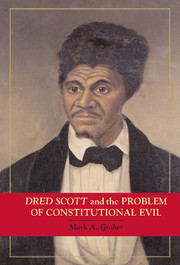Voting for John Bell
Published online by Cambridge University Press: 05 June 2012
Summary
American constitutionalists vote overwhelmingly for Abraham Lincoln whenever the presidential campaign of 1860 is refought in the contemporary academy. Lawyers, political scientists, and historians agree that Lincoln was “one of the unreconstructed Constitution's most able interpreters.” The sixteenth president is considered a “secular saint” who “teaches us both why we should be faithful to the Constitution and what fidelity is,” “a model for the role of political authority generally,” “our greatest teacher of what it means to be an American,” and the “most awesome of American political icons.” The first inaugural address is sacred text in the American civil religion. Lincoln's speech has been called “a masterpiece of constitutional analysis” that “should be studied and taught … as a classic of carefully reasoned legal analysis of the text, structure, and internal logic of the Constitution.” The few contemporary commentators who do not vote for Lincoln cast their ballots for Lysander Spooner or Frederick Douglass, political actors whose constitutional politics were even more antislavery than those of the sixteenth president. One looks in vain for any contemporary commentary suggesting that one of the other three contestants for the presidency in 1860 – Stephen Douglas, John Bell, or John Breckinridge – provides a better model than Lincoln for constitutionalists in the twenty-first century.
Conventional wisdom proclaims that Lincoln was right on all the crucial constitutional issues facing the electorate in 1860.
- Type
- Chapter
- Information
- Dred Scott and the Problem of Constitutional Evil , pp. 237 - 254Publisher: Cambridge University PressPrint publication year: 2006

